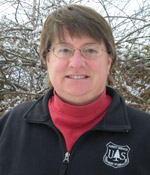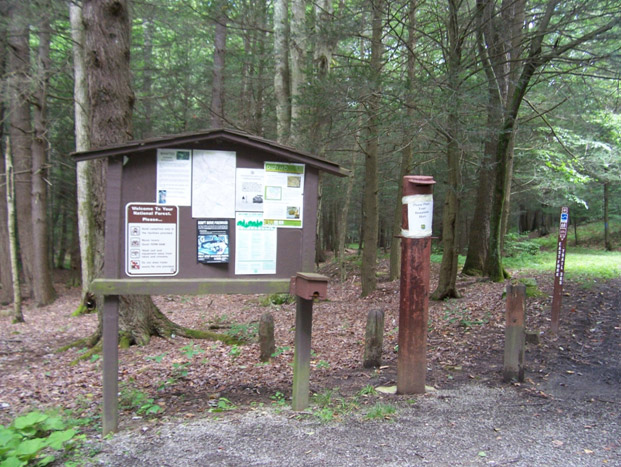
 Visitors who camp in National Forest Campgrounds are required to pay a fee to cover the costs of the services (toilets, trash removal, etc) they receive while camping. If a Forest Ranger isn’t present to collect these fees in person, campers are directed to deposit their fee into a fee tube.
Visitors who camp in National Forest Campgrounds are required to pay a fee to cover the costs of the services (toilets, trash removal, etc) they receive while camping. If a Forest Ranger isn’t present to collect these fees in person, campers are directed to deposit their fee into a fee tube.
When a Forest Ranger visits the campground, s/he unlocks the fee tube and collects the envelopes with registration info and fees. Then s/he visits with all of the campers to make sure that everyone has paid his/her fee.
While there is no question in my mind about the importance of proper handling and accounting of the money collected, I have complained for years about the process the Forest Service uses to deal with this money. In a nut shell, we have to turn the cash into a money order, complete paperwork, and then mail everything (certified) to a bank in California every week no matter how much money is collected. It boggles my mind to think about how much money the Forest Service must spend to collect money. Salary time, money order fees, postage – it all adds up.
So, when the email came around announcing the SAVE Award and encouraging us to submit ideas, I typed up my idea of depositing these collections into local banks and then allowing our national financial center to transfer the money via internet banking. I submitted the idea and then, to be quite honest, forgot about the contest as I carried on with everything we do.
A few weeks later, I had a voice mail message from the “White House - Office of Management and Budget” asking me to call them. Since these are the folks who typically audit the Forest Service, I immediately thought about what I’d done lately that could have caused OMB to want to talk with me. Then I listened to the voice mail a few more times trying to recognize the voice so that I’d know who was pranking me. When I called OMB back, I was surprised to learn that my SAVE Award idea was being seriously considered. I mean it sounded like a good idea to me, but for it to out compete all of the rest of the great ideas out there? About two weeks later, I was even more surprised to learn that my idea made it to the final four. Amazing.
As word got out about the “Final Four,” I started to receive emails from Forest Service employees all around the nation thanking me for submitting this idea because they are just as frustrated with our collections process as I am. Those emails (from folks I don’t even know) and good wishes from present and former Forest Service co-workers and friends (as far back as college) really made this time special for me.
While I'm bummed that my idea didn't win (so I'm not going to meet with President Obama), I am totally psyched that there are already serious discussions higher up in my agency about how this process can be streamlined.
Julie Fosbender is the North Zone Recreation Manager on the Monongahela National Forest in West Virginia


